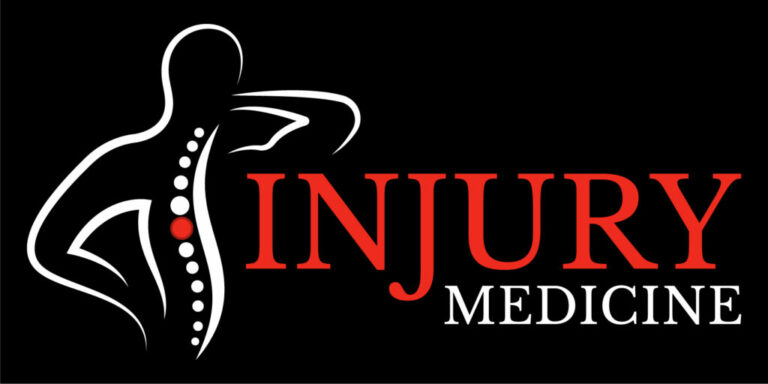There have been remarkable inventions of late in medicine, more so in the sector of surgery. The industry has come up with new, efficient, and technological methods such as using modern types of equipment and laparoscopic surgery to help reduce pain and damage to tissues. These operations are called minimally invasive procedures.
There are different reasons why you would want to visit a medical facility. One of them could be to receive surgical procedures. If caution is not taken, medical conditions that need surgical attention can lead to severe consequences like chronic pain, immobility, or death.
We have a modern and well-equipped medical facility called Injury Medicine, which offers minimally invasive procedures in Spartanburg, SC.
Apart from the high-class minimally invasive procedures, we also take pride in our modern medical facilities. We have highly skilled doctors and medical personnel who will handle you with ultimate care and compassion. They will walk with you step by step on your journey to recovery.
You can reach us at 864-866-PAIN for more information regarding minimally invasive procedures and their benefits.
What Are Minimally Invasive Procedures?
A minimally invasive procedure refers to a surgical procedure that limits the effect of pain and destruction of the surgical wound during a surgical procedure and reduces the time the injury takes to heal.
It uses technologically improved devices such as a gastroscope, laparoscope, or colonoscope to allow indirect observation of the area to be operated on a viewing monitor. Access to the site is allowed through a small incision via one of the cavities of the body or the skin. The procedure is safe, fast, and efficient.
What Are the Benefits of a Minimally Invasive Procedure?
Minimally invasive procedures have been the standard for many surgeries of late. Surgical hospitals and facilities have been investing heavily in minimally invasive procedures to make the process easier and safer for patients.
The following are some of the benefits contributing to why many hospitals have increasingly adopted the approach.
Smaller Incisions
One significant benefit of a minimally invasive procedure is that only a small incision is required to carry out an operation, unlike traditionally, when surgery required a larger incision for body parts to be operated on. This ensures less trauma to the body, less scarring, and less post-op pain.
Increased Accuracy but Reduced Risks
The use of unique cameras gives surgery as in minimally invasive procedure provides a better view of the organ being operated, apart from the instruments being advanced to allow more delicate and complex work to be done correctly.
Smaller incisions mean less bleeding and swelling. Since the wounds are small and heal quickly, there is a reduced risk of infection.
Less Scary and Short Hospital Stay
A patient will be less scared when a minimally invasive procedure is used, due to smaller incisions. Patients spend less time in the hospital and tend to heal much faster. Most minimally invasive procedures are performed on an outpatient basis.
Are There Risks to Minimally Invasive Procedures in Spartanburg?
Because of effective and safe techniques to meet the growing demand for surgical services, many surgeons prefer minimally invasive procedures over traditional open surgery, which always has extended hospital stays and larger incisions.
However, a minimally invasive procedure also has some risks associated with its use. They include;
- Robotic surgery may take longer than open surgery due to the time needed to set up the types of equipment.
- All surgery carries a risk of infections.
- Bleeding is a risk in any surgery.
Compared to the benefits, the risks associated with minimally invasive procedures can easily be managed. Our minimally invasive procedures are offered by highly specialized and professional doctors who can handle your surgery with extreme experience, thus reducing or eliminating risks altogether which may occur during or after the operation process.
Minimally Invasive Procedures We Offer at Injury Medicine
There are different minimally invasive procedures that we can handle at Injury Medicine. They help us provide the best services to you according to your needs.
Brachial Plexus Block Injection
It is a 20 minutes procedure done with a local anesthetic before inserting a small needle in an affected area with an X-ray—ideal for patients suffering from brachial plexus injuries.
Caudal Steroid Injection
A steroid shot is administered to your back to decrease inflammation and nerve pain.
Celiac Plexus Block
Injection treatment for pain relief is done to prevent celiac plexus nerves from sending pain information to your brain. It is a kind of nerve block.
Chiropractic
Chiropractic care is an alternative medicine approach for treating, preventing, and diagnosing a musculoskeletal system or spine disorder.
Discography
An imaging test diagnoses back pain. It can help know a particular abnormal disk in the spine causing back pain.
Epidural Steroid Injection
It delivers anti-inflammatory medicine into the space outside sack fluid around your spinal code.
Facet Blocks
An injection of local steroids and anesthetic to reduce inflammation in the joint space of your spine.
Facet Joint Injection
A procedure in which you get injected with a small amount of a local anesthetic to numb your facet and private joints
Injections for Back Pain
Injections for back pain are used to provide relief from pain in the back by treating inflammation as well as damage to the nerves in the back. They offer short-term and long-term relief from pain.
Joint Injections
These types of injections are meant to provide from pain in the major joints including the hips, shoulders, and knees. They provide pain relief and prevent pain from occurring by reducing the amount of inflammation in the joints.
Kyphoplasty
Kyphoplasty is used to treat bone fractures of the spine by first inflating a balloon-like device in the bone to create space and then injecting bone cement into a fractured vertebra. It stabilizes the vertebra and relieves pain.
Radiofrequency Ablation
Radiofrequency Ablation is used to provide relief from pain by using electrical currents in the form of radio waves to disrupt the transmission of pain signals.
Medial Branch Block
An injection is used to deliver strong local or general anesthetic to the medial branch nerves that send signals to the facet joints.
Medication Management
Overseeing medication prescribed to patients ensures they properly achieve their intended therapeutic outcome.
Nerve Blocks
Also known as sympathetic nerve blocks, nerve blocks are used to diagnose as well as treat the source of the pain, tingling, or burning arms and hands or feet and legs.
Occipital Nerve Block
This is a minimally invasive procedure used to provide relief from pain caused by the occipital nerves, which are located at the back of the head, above the neck.
Peripheral Nerve Block
These can be used to both diagnose as well as treat neuropathy, headaches, pelvic pain, and other ailments
Sacroiliac Joint Steroid Injection
This procedure is used to diagnose the triggers as well as the location of the pain, and also provide pain relief. It is often used to identify which sacroiliac joint is causing the pain.
Sciatic Nerve Block
This is used to provide relief from pain arising from the sciatic nerve through the injection of a combination of a steroid and a local anesthetic.
Sphenopalatine Ganglion Block
This minimally invasive procedure is aimed at alleviating headaches and facial pain arising from damaged sphenopalatine ganglion nerves.
Spinal Cord Stimulators
A spinal cord stimulator is a small device that is usually inserted under the skin and inserted into the spinal cord or connected to nerves. It is meant to provide pain relief by transmitting electrical pulses to disrupt the transmission of pain signals.
Stellate Ganglion Block
This is a minimally invasive injection procedure used to treat nerve-related pain and issues. It temporarily desensitizes branches of nerves found in your neck.
Sympathetic Nerve Blocks
This is a group of injections used to treat lower back and leg pain caused by complex regional pain syndrome, peripheral neuropathy, shingles, and sciatica.
Transforaminal Epidural Steroid Injection
This is a minimally invasive procedure used to alleviate pain and reduce inflammation by injecting a combination of local anesthesia and steroid medication into the appropriate area of the spine.
Trigger Point Injection
This is a minimally invasive injection procedure used to provide relief from pain and inflammation by administering a local anesthetic, sometimes combined with a corticosteroid, to a specific trigger point.
Vertebroplasty
Also known as vertebral augmentation, vertebroplasty is a minimally invasive surgical procedure meant for patients suffering from painful spinal compression fractures.
Call Us for Minimally Invasive Procedures in Spartanburg!
Identifying a medical facility with modern surgical equipment will give you peace of mind and save you time and money. Surgical procedures are both critical and delicate reliable sets of equipment. Apart from minimally invasive procedures reducing pain during surgery, it also has fever post complications after an operation.
Visit Injury Medicine offers the most reliable minimally invasive procedures in Spartanburg. Apart from getting world-class treatment, we will also walk with you through the journey to a full recovery while making sure you have all the necessary support you may need.
Please don’t wait. Call us today at 864-866-PAIN for more details about our minimally invasive procedures. We will attend to your questions and handle all your needs.


